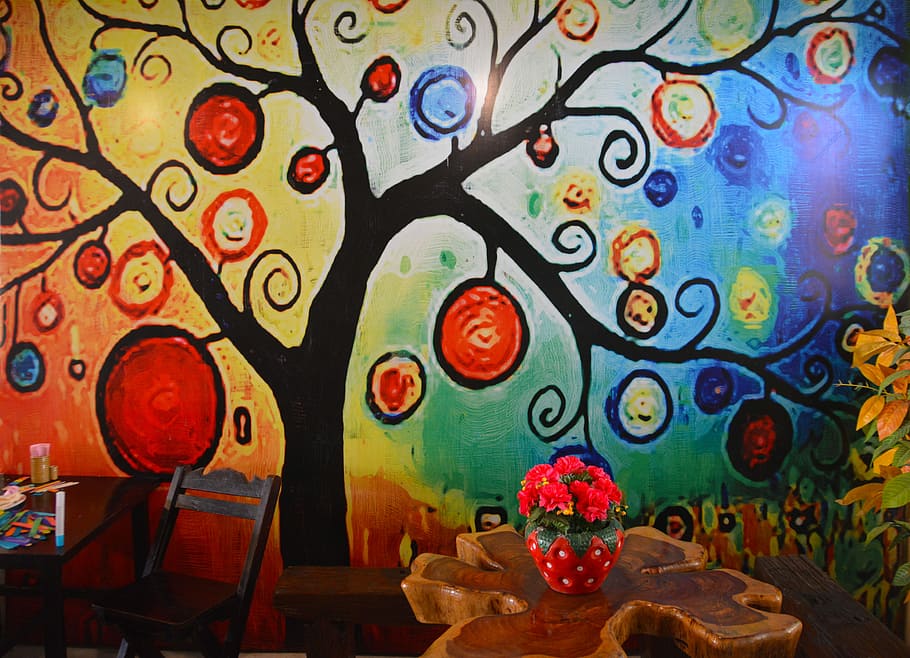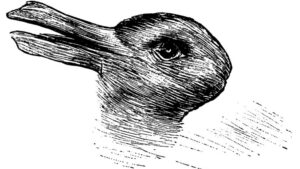Contents
Activity 1: What is knowledge?

What is knowledge? How do you know what you know? Write down your answers.
Activity 2: Read about Central Park Five
Have you heard of the Central Park Five story? Read this History.com article. In 1989 five black and Latino teenagers were convicted of raping a white woman in Central Park. After having spent between 6 and 13 years each in prison, a serial rapist confessed to the crime. Why were the teens so wrongfully convicted?
Activity 3: Watch a video about epistemology
Watch this YouTube video titled “Epistemology: How do I know?,” an episode from Closer to Truth. (Yes, I would also prefer to see fewer old white men and more diversity here. If you find a better video on this topic, let me know.)
Activity 4: What do you see?

Rabbit or duck, or duck or rabbit? Or neither of the two, something entirely different?
That’s the question we have been asking for over 100 years. So what? Well, if both people look at the same image but see something different, what if they witness the same crime and see something different? Or what if they witness the same event but their reports vary? What are the implications? Is your reality more real than mine? Or vice versa?
Activity 5: Can we trust our memory?
Watch this 5-minute YouTube video from Discover Psychology to find out:
Activity 6: Test your memory
Take a memory test. What are your results?
Activity 7: Anecdotal evidence
What is anecdotal evidence? Can we trust it? Look at this cartoon and decide.
Activity 8: About claims
What are claims? What are the different types of claims? Review this document on Claims.
Activity 9: Take quiz 4 on Blackboard.
Take this module’s quiz on Blackboard. Now imagine that class is over.
Activity 10: What is a cult?
Now imagine a new class begins. Let’s talk about cults. How would you define a cult? Read this article about cults to learn more, and see Blackboard/ Week 4 to access the pdf. Written by Philip Zimbardo, it was first published in the APA Monitor in 1997.
Activity 11: Explore resources about cults
Here’s a site of resources and readings about cults. Exolore it, and read at least one article OR watch watch this 22-minute YouTube video about the Charles Manson cult.
Activity 12: Conversation 4

For this Discussion Board post, you have 3 options:
1. Create a cult. Perhaps start with something you’re interested in, and think of ways your knowledge about this topic could benefit others. Select a leader (you?). Establish the rules of the cult. Where will this cult live? How will you recruit followers? Why should we join?
2. Find a story about a cult (news article, memoir, short film, interview, anything) and summarize it. Next, describe the steps you could take to avoid being enlisted in this cult.
3. Select one article from Cult Recovery 101, summarize it and let us know what you learned.
Replies to classmates: See what your classmates have posted and respond to them. If they created a cult, is it convincing? If they summarized a story or an article, did you learn something new? If you read the same article, are your summaries similar or different?
Additional/ Optional Resources
- Listen to the first 7 minutes of the podcast about wrongful convictions. If this sparks your interest, listen to the entire podcast
- Check out this National Registry of Exonerations site. The Peter Reilly story is just one of many. You can “browse cases” to see more.
